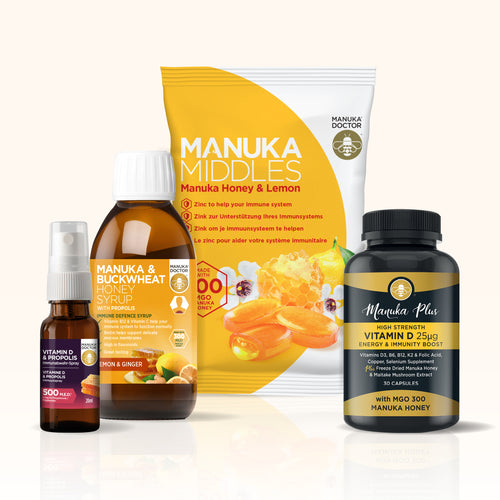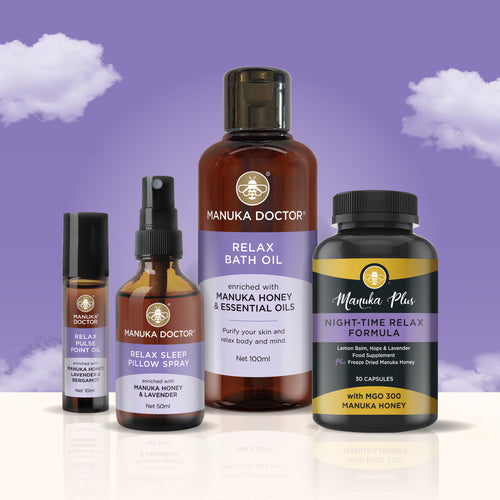Using acid as a soothing skincare ingredient doesn’t sound like the best idea, but hyaluronic acid is different. Known for its moisture-boosting abilities, this hydrating powerhouse can be found in products from serums to sun cream.
But what exactly is it, and why should you use it? Here’s everything you need to know about hyaluronic acid (HA).
What is hyaluronic acid?
Although it’s called an acid, HA is anything but – rather than exfoliating or removing skin cells, hyaluronic acid helps them retain moisture so they look plumper and stay hydrated.
HA is produced naturally by the body – in fact, 50% of it is found in our skin1 – but levels start to drop as we get older. Some of this is due to the ageing process, but some of it is the damage caused by free-radicals such as UV light, smoking, and environmental pollution2.

You can also find hyaluronic acid in our joints, eyes and ligaments; essentially anywhere that needs to stay supple to work effectively3.
How hyaluronic acid benefits your skin
Dry, dehydrated skin can look dull, leading to fine lines and deeper wrinkles. But HA works like a sponge, so it can absorb and hold on to huge amounts of water. Abigail James, renowned celebrity facialist, says, ‘One molecule of hyaluronic acid can hold 1,000 times it’s own weight in moisture!’ It can also help regulate the amount of water within skin cells, so they maintain balanced moisture levels.
There’s a growing amount of research to show that hyaluronic acid helps skin look younger and smoother. German researchers found that applying HA to the skin led to a ‘significant improvement’ in hydration and elasticity,4 while another study by the University of Miami discovered that it could reduce the depth of wrinkles by 40% and boosted skin hydration by 96% in eight weeks.5

More clinical trials report that hyaluronic acid can improve skin tightness, while it’s also an effective antioxidant, protecting against free-radical damage.6,7 Abigail says, ‘When it comes to hydrating and plumping your skin, HA is a no-brainer.’
Where to find hyaluronic acid
Thanks to its skin-boosting benefits, you can find HA in a number of products, including cleansers, serums, face masks, and even injectable fillers. Check the labels on any packaging, where it might be listed as sodium hyaluronate or hyaluronan. Sodium hyaluronate is actually a salt derived from HA with smaller molecules, which means it’s more easily absorbed by the skin.
Because we produce HA naturally, it should be suitable for all skin types but be careful if you have sensitive skin, or tend to react to any changes in your skincare regime. Abigail recommends using a serum containing HA, followed by a moisturiser to help ‘lock in’ the benefits. Using just one or the other could mean that your skin will miss out on a vital boost of hydration.




